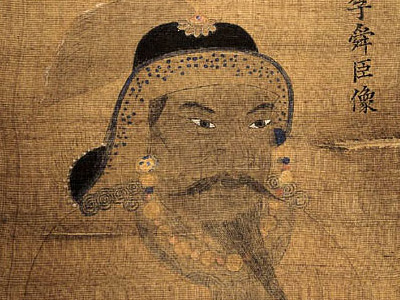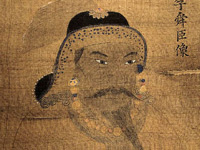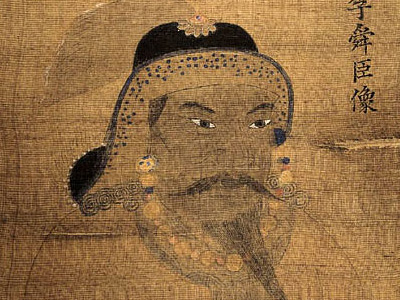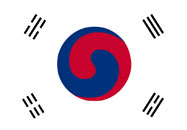Yi Sun-Shin 이순신 (1545-1598)

The Japanese Double-agent Plot
As Yi won battle after battle, Hideyoshi and his commanders became anxious as they neared Busan. Yi constantly attacked and delayed supply ships bringing food, weapons, and reinforcements to the Japanese. At one point, the entire invasion was halted just before attacking Pyongyang when supplies and troops failed to reach the First and Second Divisions.
Hideyoshi soon adjusted. At Busan, the Japanese warships were reinforced and some cannons added to larger ships. The fleet clustered beneath the harbor's defenses of heavy shore-mounted cannons that were acquired from the armory. But, above all, the Japanese knew that, for a successful invasion of Joseon, Yi had to be eliminated. Not a single Japanese ship would be safe for as long as he was commanding the sea.
Taking advantage of the many internal court rivalries of the Joseon Dynasty, the Japanese devised a plan. A Japanese double agent named Yoshira (要時羅) was sent to the Joseon general Kim Gyeong-seo (김경서; 金景瑞; 1564–1624), and convinced the general that he would spy on the Japanese. Yoshira played this role until Kim began believing anything he would say.
One day, he told General Kim Gyeong-seo that the Japanese general Katō Kiyomasa would be coming on a certain date with a great fleet for another attack on the south shores and insisted that Admiral Yi be sent to lay an ambush. General Kim agreed and sent the message to Field Marshal Gwon Yul (권율; 權慄; 1537–1599), Commander-in-Chief (도원수; 導元帥) of the Joseon military, who, in turn, sent the message to King Seonjo. King Seonjo, who was desperate for victories to loosen the Japanese grip on his kingdom, gave permission for the attack. When General Kim gave Admiral Yi his orders, the admiral refused to carry them out, for he knew that the location given by the spy was studded with sunken rocks and was thus extremely dangerous. Admiral Yi also refused because he did not trust the words of spies.
When General Kim informed the king of Admiral Yi's refusal, the admiral's enemies at court quickly insisted on his replacement by General Won Gyun, former commander of the Gyeongsang Province Western Fleet and Commander of the Jeolla Province Ground Forces. They advised that Admiral Yi be arrested.
As a result, in 1597, Yi was relieved of command, placed under arrest, and taken to Seoul in chains to be imprisoned and tortured. Yi was tortured almost to the point of death by using simple torture tactics such as whipping, flogging, burning, the cudgel, or even the classic technique of leg breaking torture. King Seonjo wanted to have Yi killed, but the admiral's supporters at court, chiefly the minister Jeong Tak (정탁; 鄭琢; 1526–1605), convinced the king to spare him due to his past service record. The prime minister, Yu Seong-ryong, who was Yi's childhood friend and his main supporter, remained silent during this deadly hour. Spared the death penalty, Admiral Yi was again demoted to the rank of a common infantry soldier under General Gwon Yul. This penalty was worse than death for Joseon generals at that time, since they lived by honor. However, Yi responded to this humiliation as a most obedient subject, quietly going about his work as if his rank and orders were appropriate. Despite his low rank, many officers treated him with respect, since they knew that the admiral did nothing wrong. Yi would stay under General Gwon Yul's command for a short while until Won Gyun's death at the Battle of Chilchonryang, which would lead to his reinstatement.
HISTORY

RESOURCES
This article uses material from the Wikipedia article "Yi Sun-Shin", which is released under the Creative Commons Attribution-Share-Alike License 3.0.
© Stories Preschool. All Rights Reserved.











